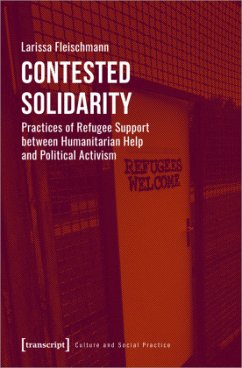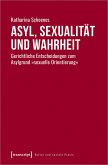In the summer of 2015, an extraordinary number of German residents felt an urge to provide help to refugees. Doing good, however, is not as simple and straightforward as it might appear. Practices of solidarity are intertwined with questions of power. They are situated, relative and contested, unfolding in an ambivalent space between humanitarianism and political activism. This ethnographic account of the German »welcome culture« provides insights into the contested practices, imaginaries, interests and politics of refugee solidarity. Drawing on works from critical migration studies to social anthropology, Larissa Fleischmann develops an empirically grounded understanding of solidarity in migration societies.
Hinweis: Dieser Artikel kann nur an eine deutsche Lieferadresse ausgeliefert werden.
Hinweis: Dieser Artikel kann nur an eine deutsche Lieferadresse ausgeliefert werden.








